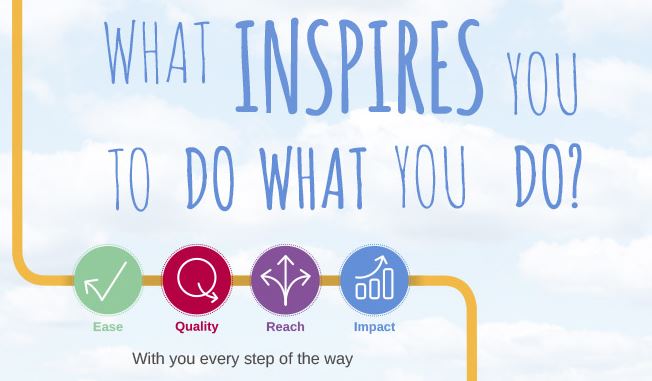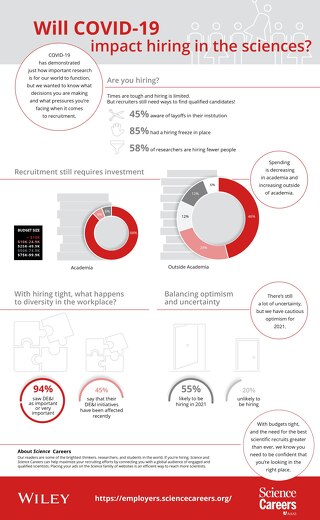whyweimaginethefuture
July 06, 2021
When I sat down to think about the next twenty years of change for the research community, I kept circling back to the idea that twenty years is way too long. I’m all for the long game but with the pace of change each year, no one can predict 20 years out. But, you can imagine what you want that future to look like and start building towards it.
I’m not really a wait-and-see kind of person. I think it is important to be in the driver’s seat. The question isn’t whether there will be change, it’s how we will change and how we can make sure change makes the whole publishing process better for everyone--from author to reader—and positively impacts the world we live in.
Our customers are hungry for change. They are the ones we need to listen to and the ones we are helping with each new development or solution we dream up. Technology is a big enabler of that change, no doubt, but its important to keep people front and center as we’re imagining a better future.
It’s important to think about the needs of early career researchers who have grown up in the digital age. We need to listen to them – even when they call the publishing process archaic – and we’re already exploring new ways to support them. We’re simplifying submissions with tools like Research Exchange (ReX), and supporting seamless collaboration with platforms like Authorea. We’re even experimenting with ways to help you share your research, like automatically uploading your research to ResearchGate. Our digital world is one where everything is immediate, so why shouldn’t researchers expect to get the word out about their work as soon as possible?
When change is slow to come, it frustrates me. But it can be hard to find the right change, the best change for the community we have and the one we want to build for the future. None of us has a crystal ball, so every change has to start with a listening ear and a little imagination. It also has to start with taking the first step, and continuing to step forward. We can’t just think about positive change, we have to drive it.
It’s disappointing to me that the article has been the same for hundreds of years, and with all the power of the internet, it’s still just a flat PDF. Especially given the critical importance of this market to our world. Researchers have to squeeze and format information into PDFs that goes way beyond something so static.
We need to make it easier. Authoring a paper, reviewing a paper, and getting it out in the world needs to be better because the information is so valuable. Other researchers need it. People outside of research need it.
Our tools and practices need to evolve, but so does our community. It will be a dramatic failure if the face of research still looks like it does today in twenty years. Regardless of who you are or where you come from, if you have the passion, drive, and curiosity, you can become a researcher. You should become a researcher! You can be a part of finding solutions to some of the biggest challenges we face as a planet and as a species.
Change, the future, it’s all unbelievably exciting. We can’t stop imagining what it will look like, and accepting the status quo is unacceptable. If we sit around and follow, then we might not like where the future takes us.
Imagine the possibilities of different kinds of AI coming in to shake things up. Imagine the better platforms and services we can provide, especially as the industry continues to open up.
I know what some of our community might be thinking: why should a publisher get in the driver’s seat? This ecosystem is complicated and with so much information out there, we need a control point for quality. That’s one of our jobs. We’re here to make sure that each article is clear, accurate, peer reviewed, and able to find its audience. On top of that, we can use the weight of our full portfolio to lead our industry toward change with actions that range from inclusive practices like our Author Name Change Policy to transformational deals we make to make it easier for everyone to publish open access.
Our job is to figure out what’s not working for you in the publishing process and make it better. Your needs are front and center. If the COVID-19 pandemic has put exclamation points on anything, it’s that the consequences are huge if we can’t get research to the people who need it quickly. And the consequences are just as huge if that research isn’t quality research.
But what are we waiting for? Twenty years! Let’s see change this year, next year. How much could we transform in just five years if we put our heads together?
This piece kicks off our series, What does the future hold and how will we get there?
Download and read the full whitepaper here.










